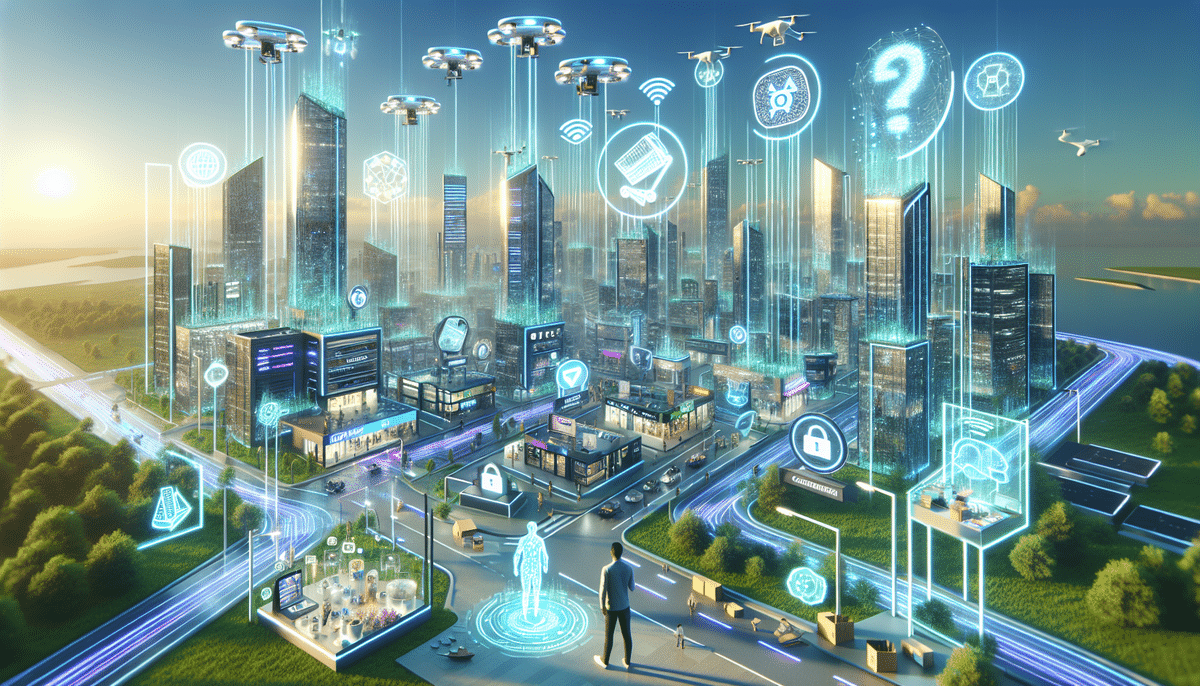Exploring the Ecommerce Tech of the Fastest Growing Companies
In recent years, ecommerce has fundamentally transformed the way consumers shop online. The exponential growth of the ecommerce industry is driven by continuous technological innovations that enable companies to stay competitive. This article delves into the critical role of technology in ecommerce growth and examines the top ecommerce technologies employed by the fastest growing companies.
The Importance of Technology in Ecommerce Growth
Technology is pivotal in driving ecommerce growth, facilitating a seamless shopping experience from product discovery to transaction completion. Ecommerce businesses constantly seek new technologies to enhance customer experience, streamline operations, and boost sales. Effective use of ecommerce technology allows companies to increase market share, expand their reach, and optimize their operations.
One of the most significant technologies in ecommerce today is mobile optimization. With over 70% of ecommerce sales now expected to come from mobile devices, having a mobile-friendly website or app is essential. Mobile commerce allows customers to shop on-the-go, simplifying the purchasing process and driving sales. According to Statista, mobile commerce is projected to account for approximately 81.1% of ecommerce sales by 2024.
Another critical technology is artificial intelligence (AI). AI enables personalized shopping experiences by recommending products based on customers' browsing and purchase history. Additionally, AI automates tasks such as inventory management and customer service, allowing businesses to focus on strategic growth areas. According to a report by McKinsey, AI could potentially generate up to $1.2 trillion in value for the ecommerce sector by 2030.
The Top Ecommerce Technologies Used by Fast-Growing Companies
Fast-growing ecommerce companies leverage a variety of technologies to stay ahead and meet the evolving demands of online shoppers. Below are some of the leading ecommerce technologies:
1. Artificial Intelligence (AI)
AI automates routine tasks such as customer service, inventory management, and fraud detection. AI-powered chatbots provide 24/7 customer support, enhancing customer satisfaction and loyalty. Moreover, AI analyzes data to gain insights into customer behavior and preferences, informing personalized marketing strategies.
2. Big Data Analytics
Big data analytics allows companies to mine data from various sources to improve marketing efforts, pricing strategies, and product recommendations. By analyzing customer data, ecommerce companies can create personalized shopping experiences tailored to individual preferences, driving sales and customer retention.
3. Cloud Computing
Cloud computing offers a scalable and cost-effective solution for data storage, inventory management, and transaction processing. It enables ecommerce companies to operate globally without significant investments in hardware and software. Additionally, cloud computing provides real-time data analysis, aiding companies in swiftly responding to market trends and customer preferences.
4. Mobile Commerce
Mobile commerce continues to be a cornerstone of modern ecommerce strategies. Fast-growing companies invest in mobile-optimized websites and applications to offer a seamless shopping experience on smartphones and tablets. This accessibility increases convenience for customers and drives higher sales volumes.
5. Social Media Marketing
Social media platforms are integral to ecommerce marketing strategies, enabling companies to reach a broader audience, engage with customers, and build brand awareness. Social media also offers valuable data that can guide marketing campaigns and product development.
6. Augmented Reality (AR) and Virtual Reality (VR)
AR and VR technologies are revolutionizing online shopping by allowing customers to virtually try on products, view items in 3D, and explore virtual stores. These immersive experiences enhance customer engagement and can significantly boost sales.
7. Payment Gateways
Payment gateways ensure secure and seamless transactions for customers. Fast-growing ecommerce companies integrate payment gateways that support multiple payment options, including credit cards, PayPal, and mobile payments. This flexibility helps reduce cart abandonment rates.
8. Cybersecurity
Cybersecurity is critical for ecommerce companies handling sensitive customer information, such as credit card details and personal data. Leading ecommerce companies prioritize cybersecurity by investing in secure hosting, SSL certificates, and encryption technologies. This ensures the protection of customer data from cyber threats, thereby maintaining customer trust and safeguarding the company’s reputation.
9. Delivery and Fulfillment Technologies
Efficient delivery and fulfillment are essential for a positive customer experience. Fast-growing ecommerce companies utilize advanced delivery and fulfillment technologies, such as drones, robots, and automated warehouses, to streamline operations and ensure prompt deliveries. These technologies enhance customer satisfaction and loyalty.
10. Personalization and Customization Features
Personalization and customization are key to increasing customer loyalty and retention. Ecommerce companies invest in technologies that offer personalized product recommendations, customized products, and loyalty programs. These features create a more engaging and rewarding shopping experience for customers.
In addition to these technologies, sustainability is becoming increasingly important. Leading ecommerce companies are adopting sustainable packaging solutions, such as biodegradable materials and reusable containers, to minimize environmental impact. They are also investing in renewable energy sources like solar and wind power to power their operations, appealing to environmentally conscious consumers and enhancing their brand image.
How Fast-Growing Companies are Adapting to Changing Consumer Behavior in the Digital Age
Consumer behavior is continually evolving, and fast-growing ecommerce companies adapt by investing in technologies that align with these changes. The surge in mobile shopping, for instance, has led to significant investments in mobile-friendly websites and applications. Similarly, the demand for personalized experiences has driven investments in AI-powered chatbots and big data analytics.
Moreover, sustainability and ethical practices are increasingly important to consumers. Ecommerce companies are investing in eco-friendly packaging, reducing their carbon footprint, and ensuring fair labor practices within their supply chains. These efforts not only attract environmentally conscious consumers but also help build a positive and responsible brand image.
The Future of Ecommerce Tech: Predictions and Trends for 2024 and Beyond
The ecommerce industry continues to evolve, with fast-growing companies leading the adoption of innovative technologies. Emerging trends for 2024 and beyond include voice-based assistants, machine learning algorithms, and augmented reality-enhanced shopping experiences. These technologies will help ecommerce companies maintain a competitive edge in the digital marketplace.
One significant trend is the increased use of chatbots. Chatbots simulate human conversation, assisting customers with queries and providing personalized recommendations. This enhances the shopping experience by making it more convenient and efficient.
Another trend gaining traction is blockchain technology. Blockchain offers a decentralized, secure, and transparent ledger system that can improve supply chain management, reduce fraud, and enhance customer trust. Ecommerce companies utilizing blockchain can provide greater transparency and security in their transactions, which is increasingly valued by consumers.
Conclusion
Fast-growing ecommerce companies recognize the critical role of technology in driving growth, sales, and customer satisfaction. By investing in innovative technologies such as AI, big data analytics, cloud computing, mobile commerce, social media marketing, AR, VR, and cybersecurity, these companies provide a seamless and personalized shopping experience. Additionally, they are well-equipped to adapt to changing consumer behaviors and stay ahead of the competition.
However, it is essential for ecommerce companies to balance technological advancements with the human touch. Providing excellent customer service, building strong relationships with customers, and fostering a sense of community through social media are equally important for the success of an ecommerce business. By combining technology with human interaction, ecommerce companies can develop a well-rounded and effective strategy for sustained growth.






















